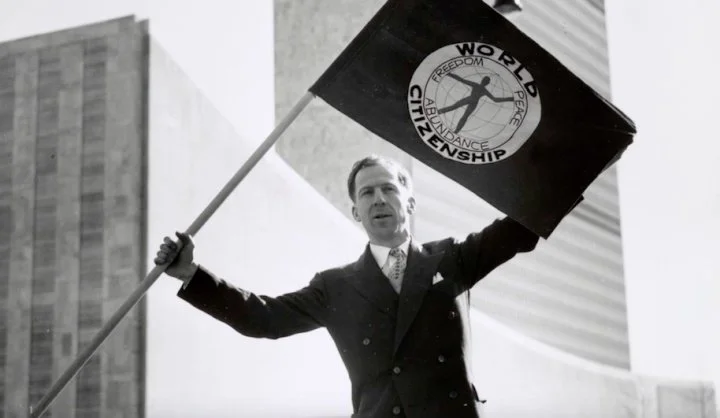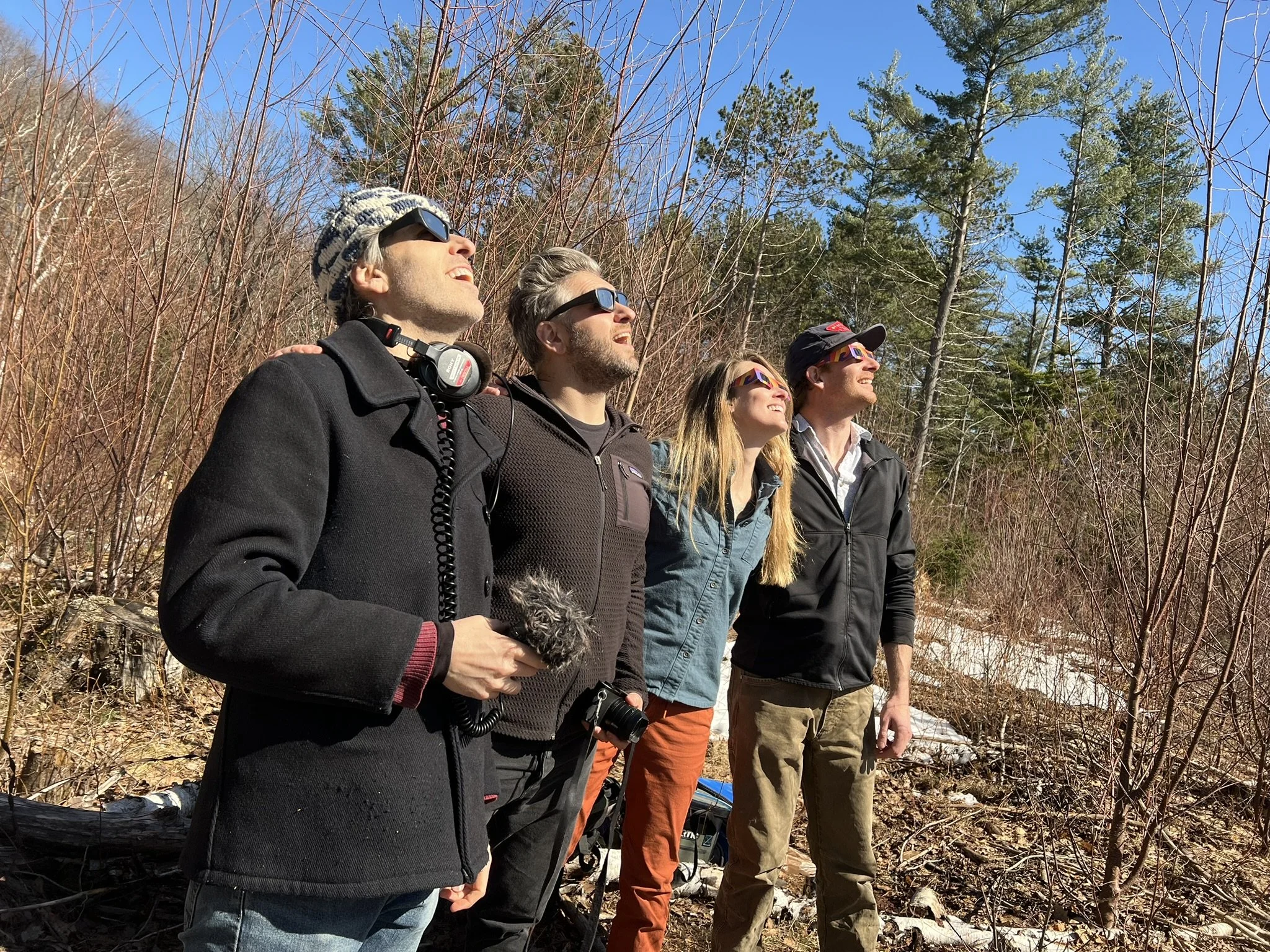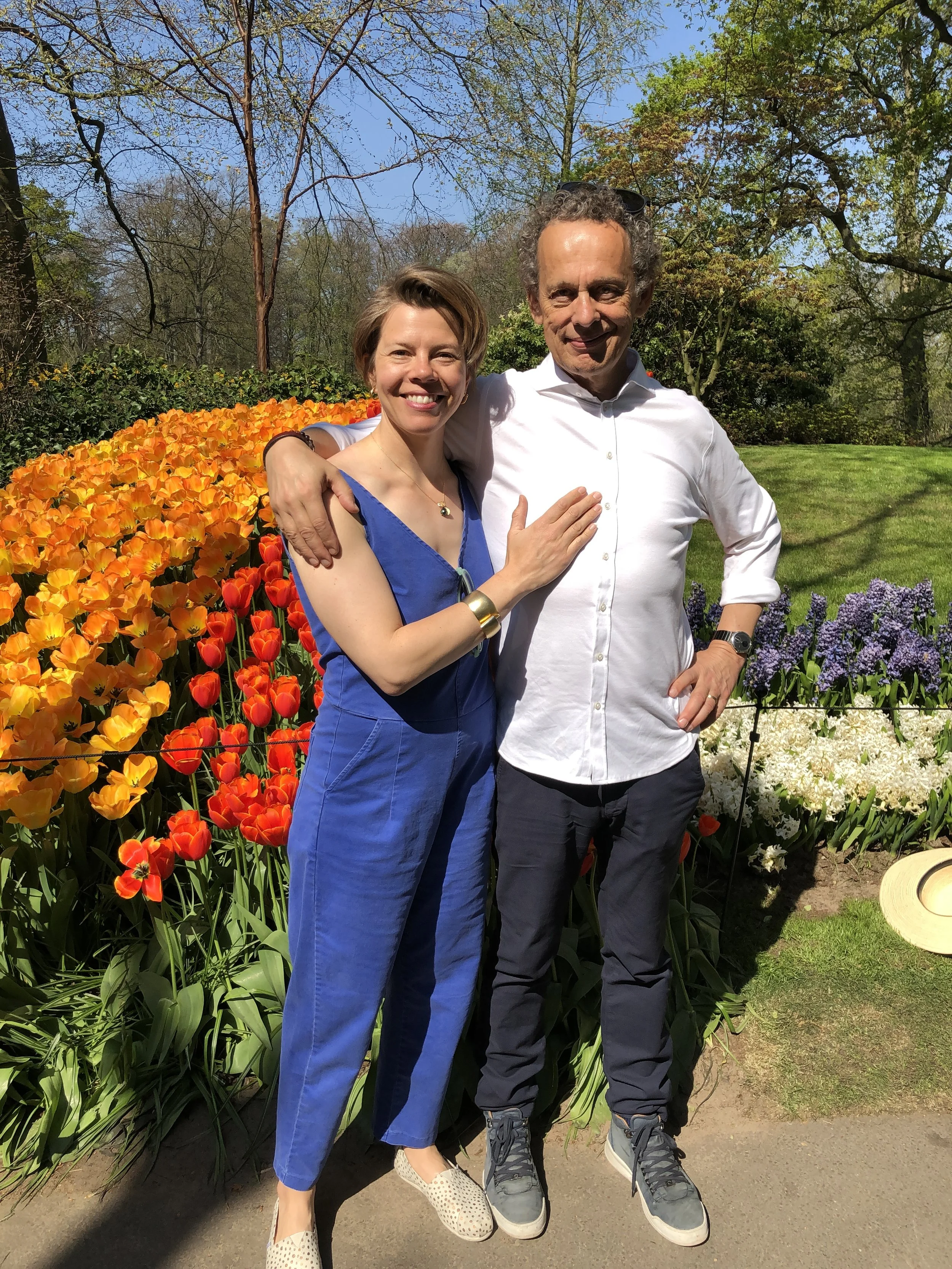(or access my RSS feed to receive updates through the blog reader of your choice)
In the Nørrebro neighborhood of Copenhagen, there's a small building with a garden and wooden seats. At first glance, it looks like some sort of neighborhood cafe, but it's actually the Menneskebiblioteket or Human Library, where the "readers" and "books" are people having deeply personal and intimate conversations...
When he was 26 years old in 1948, Garry Davis did something that would make the rest of his life really complicated. Over the next six decades, he’d be detained and imprisoned 34 times in 9 countries, dragged off the floor of the United Nations General Assembly, and gain millions of followers, all while confronting countless bureaucrats who had absolutely no idea what to do with him.
Over the past few months, President Trump has taken a sort of a slash-and-burn approach to much of the U.S. government, and among the many taxpayer-funded programs he’s axed has been American foreign assistance distributed through the Agency for International Development or USAID. That’s billions of dollars that helped with things like Ebola prevention in West Africa, malaria testing in Myanmar, famine relief to war-torn Sudan, and food deliveries to refugees from Western Sahara.
Montreal is a city often split between English and French languages and cultures, but one thing that almost all residents can get behind is cheering on their beloved hockey team, the Canadiens. This isn't just your run-of-the-mill, sports-crazed city, however. The love of hockey here runs much deeper.
The current conflict between Russia and Ukraine is now entering its third year, and it’s been a humanitarian disaster. According to UNHCR, the United Nations Refugee Agency, it’s displaced nearly 7 million Ukrainians globally. And on the other side, an estimated 900-thousand Russians have also fled their country for various reasons. Among them are economic migrants, conscientious objectors and political refugees, but also a smaller subset of hundreds of exiled journalists, who’ve had to leave in order to continue to report freely without having to worry about their personal safety.
In 2019 I visited Puerto Rico, where my high school friend Rob now lives. Rob introduced me to the tradition of parrandas, which are sort of like the Puerto Rican version of Christmas caroling, and I got to experience a parranda with a unique twist.
What exactly is Canadian cuisine? Is that actually even a thing? To the average person -- and even the average Canadian -- that question is a bit of a mystery, cause there isn’t really a strong national culinary identity the way there is in Italy or Mexico, for example.
In 1971, a group of squatters took over an abandoned military base just across the harbor from downtown Copenhagen. They created a politically autonomous anarchist zone -- in other words, a commune -- with its own flag, marching band, and consensus-driven governance process. They decided to call their community Freetown Christiania.
When the last total solar eclipse crossed the United States back in August of 2017, I didn’t think it was a huge deal, so I went ahead with my existing plans for that day, which involved being aboard a cross-country flight at the time of the event. I later regretted my decision and vowed I would do whatever it takes to see a total solar eclipse in the future.
In 2013, Thor Pedersen was 34 years old, living in Copenhagen, and doing quite well within his chosen career of shipping and logistics. He had a comfortable life, had just purchased an apartment, and had recently started dating a woman he really liked. Looking back, he says there wasn't much in the cards that would suggest he would completely change course and set off on an adventure into the world, but that’s in fact precisely what was about to happen.
It was mid-2004. I was early in my career as a public radio reporter and applying for literally every job opening I saw. I wasn’t having much luck until I heard back one day from a small station in Norman, Oklahoma.
Jamie Yuenger was born and spent most of her life here in the United States, including over a decade in New York City. Then a few years ago, she fell in love with a Dutch guy named Piet and decided to join him in the Netherlands. She didn’t understand the language or the culture, but really, she figured… how difficult could it be?
In the days that followed 9/11, the cleanup process began, along with the search for answers. And then came the response. President Bush and other political leaders quickly vowed revenge against the perpetrators of the attack. But not everyone found his words comforting. Around this time, a small but vocal group of people got together to speak out for peace.
COVID-19 has closed borders and made traveling difficult if not impossible for many of us. But radio signals don’t needs passports or plane tickets. They circle the earth, bouncing off the atmosphere, so even if you’re confined to your home, it’s possible – with a good antenna – to listen to voices from the other side of the planet.
For anyone who lives in Oklahoma City, April 19th is generally a somber day. It’s the anniversary of the 1995 bombing of the Alfred P. Murrah Federal Building, which killed 168 people including 19 children. Prior to September 11, 2001, it bore the distinction of being the deadliest terrorist attack on American soil.
Justin and Patrice La Vigne had a lot of hiking experience under their belts by the time they set out on Te Araroa — a 2000 mile path across New Zealand — so they were pretty sure they knew what they were getting into. But this trip would be much different from anywhere else they had gone in the past.
During this period when travel hasn’t really been possible, exploring places closer to home has given me a greater appreciation for all the fascinating and undiscovered adventures it’s possible to have right in my own backyard.
Where I come from in the United States, this time of year means dressing up in costumes, carving jack-o’-lanterns, and watching scary movies. And of course going to the polls. But in Peru, people have other traditions. Chief among them is the celebration of All Saint’s Day and All Soul’s Day on the 1st and 2nd of November.
In many ways, Barbuda is a lot like other Caribbean islands. It has beautiful pink sand beaches, pastel colored homes, and tropical fruits I’d never heard of before I before I went. But there’s also something really unique about this place.
Like many people, I’ve been pushed by the protests for racial justice these past few weeks to take a step back, reexamine my place in this world, and think once again about how so many people go through vastly different experiences in life simply because of the color of their skin.
The historical accounts are a bit fuzzy, but the way the story is commonly told, Caribbean slaves in the 18th century gained a day of freedom two times a year, on Boxing Day (the day after Christmas) and New Year’s Day. They made costumes and played music to celebrate, and over the centuries, that tradition evolved into what’s now know as the annual Junkanoo festival, an all-night parade through the streets that’s been compared to Mardi Gras in New Orleans and Carnival in Brazil.
It was the fall of 2016. I had just finished driving 11,000 miles across Europe and Asia -- the story I told on the first season of this podcast -- and now my friend Donna had flown out to Eastern Siberia to join me for the trip back, three quarters of the way across the largest country in the world. I’d hardly spent any time in Russia up to this point, so I really had little idea what to expect.
This week’s episode of Far From Home is a bit different from what I normally do on the show. I’ve been getting a lot of questions and comments from listeners recently, so I spend some time answering some of them and sharing a bit of the feedback I’ve received. I also feature a recent interview I did with Corey Cambridge on his program, OPP (Other People’s Podcast), where I talk a little more about my background and the thinking that goes into my show.
This upcoming January marks the tenth anniversary of the massive earthquake in Haiti. It came on a Tuesday afternoon, 12 days into the new year, and destroyed or severely damaged a quarter of a million homes, killing more than 100,000 people.
When he was growing up in Southern California, Addi Somekh wasn't quite sure what to do with his life. But he knew from a young age that he wanted to "spread warmth" and make other people happy. On this week’s episode, the unusual story of how Addi’s quest to do just that set him off on a worldwide mission to make people laugh.
Cambodia has changed dramatically in recent years. It was just a few decades ago that the country experienced a massive genocide, where about a quarter of its population was killed under the rule of the dictator Pol Pot and his brutal communist followers in the Khmer Rouge. But today it’s become one of Southeast Asia’s tourist hotspots.
It was a Saturday, a few weeks after I’d first met him, when Lucho sent me a text. It was totally last minute, but some people had hired him to lead an ayahuasca healing ceremony that evening in the Huarochiri Valley, an area of shantytowns on the northern outskirts of Lima, Peru. He asked if I wanted to tag along.
Lucho is a traditional medicine man who describes himself as a "curandero," or someone who heals. Using medicinal herbs, archeological relics, and hallucinogenic plants (as well as some special powers), he claims to have rid himself of diabetes and his father of cancer. He regularly travels around Peru treating people with all sorts of ailments. "Some diseases are said to be incurable," he told me, "but in the jungle, there is no way that a disease cannot be cured."
Before traveling to Ireland a few months ago, I’ll confess I knew very little about the island and its history. I had this vague notion – like I think a lot of people – that there had been some fighting in Northern Ireland in the past, but that it was all over now, everyone had moved on, and things were more or less back to normal. So I was surprised to learn that in many ways, that was very much not the case.
Tuva is famous for its style of throat singing, which the local people call khoomei. It’s an ancient practice created by the nomadic people of Central Asia who were trying to mimic sounds of nature like the songs of birds, a babbling brook, or even the growls of a camel. Experienced singers can produce up to four pitches simultaneously, creating an effect like a bagpipe or a didgeridoo. And these are sounds I didn’t even realize it was possible for a human to make!
You can access older articles by clicking the link next to the specific episode on the episode page.































